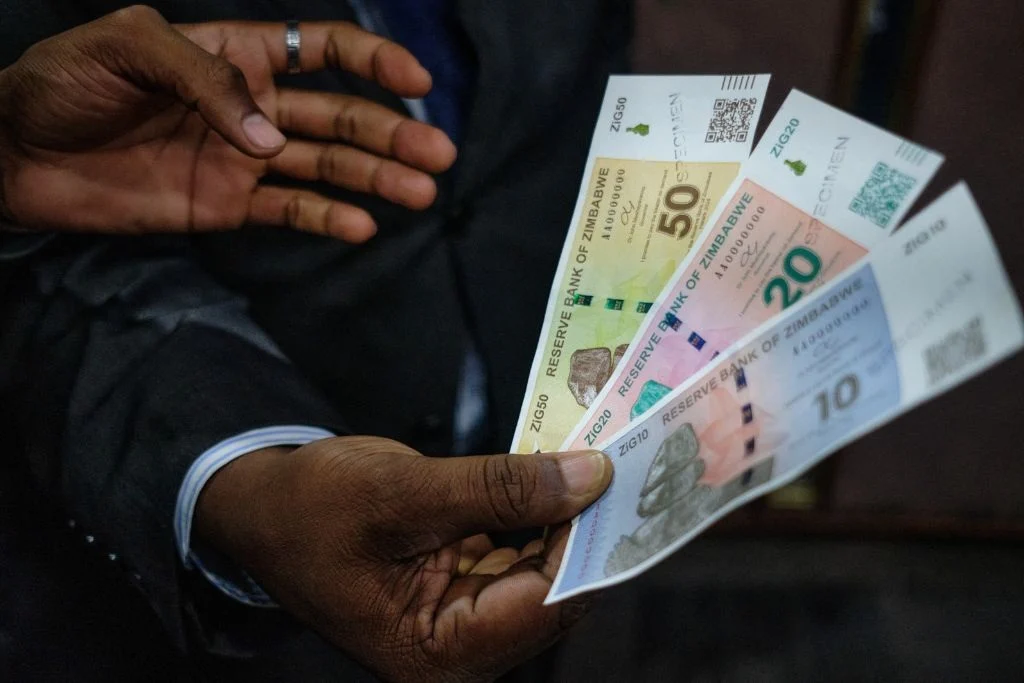HARARE – Top anti-corruption watchdog, Information for Development Trust (IDT) in its latest study has documented that five major Chinese companies’ mining operations were not in compliance with national laws and policy frameworks coupled with impunity.
Zanu PF bigwigs, appendages and government officials are implicated for aiding and abetting the five Chinese companies to commit gross human rights and environmental violations.
The study “Purses and Curses: Impact of Chinese Mining on Local Communities in Zimbabwe” unpacks how some elements of Chinese US$ 2,7 billion Foreign Direct Investment (FDI) have exacerbated ongoing growing conflicts between Chinese firms and local communities being evicted and displaced from their ancestral land and homes to make way for these projects.
Key findings of the study exposed how five companies Chengxi Mining (Pvt) Ltd, AfroChine Smelting (Pvt) Ltd, Dore Green Customs Milling, STC Mine Cyanide Chemical (Pvt) Ltd and Ming Chang Sino Africa (Pvt) Ltd left a devastating trail of environmental degradation, human rights abuses, and cultural degradation that will negatively affect future generations.
The study documents that one Lameck Mnangagwa who identified himself as president Emmerson Mnangagwa’s relative to the Zhombe community played a pivotal role in safeguarding Dore Green Customs Milling multiple illegal operations.
“Dore Green Customs Milling neglected fencing off its cyanide tanks as required by the Environmental Management (Control of Hazardous Substances) (General) regulations in Zhombe 2018.
“A household identified as the Siziba family reportedly lost three herds of cattle after the livestock drank poisoned water from the Chinese mine premises.
“Former employees Robson Moyo and Tichaona Siziba were subjected to thorough beatings by the Chinese for alleged misdemeanor.
“In addition, Dore Green Customs barred local workers from exercising their right to demonstrate or petition. One of the employees was expelled from work because he had mobilized other workers to demand improved working conditions,” read parts of the study’s finding.
In Bubi, Ming Chang Sino Africa (Pvt) Ltd, according to the study ill-treated and abused its workers, in breach of their rights conferred by the Constitution of Zimbabwe and other statutes.
“Workers complained that they were underpaid in breach of their constitutional right as set out in s65 (1) and forced to work in mine shafts without protective clothing. This exposed them to injuries and other health hazards.
“The lowest paid employee was receiving US$6. Such an amount falls short of the amounts set out in SI 286/21(Collective Bargaining Agreement: Mining Industry), which stipulates the minimum salary payable at the sum of US$192.98.
“The mining company is said to have told its workers that it could not pay full salaries because it was still developing,” read findings of the study.
Ming Chang Sino Africa (Pvt) Ltd management boasted that they were well protected by government officials.
Workers operated without protective clothing and were restricted from joining labour unions, in contravention of Section 65 of the Constitution.
In addition, Ming Chang Sino Africa (Pvt) Ltd in the study is accused of violating the Environmental Management Act (Chapter 20: 27).
“The lime plant in Bubi caused pollution due to the emission of hazardous gases and workers were exposed to lime dust.
“The tar (a by-product from the coal gas maker) was being negligently discarded in undesignated places, thereby polluting the environment.
“There were no mechanisms for dust suppression or the cleaning of gases produced from the kiln and gas maker,” reads the study.
In Zvishavane, Chinese chrome miners such as AfroChine Smelting (Pvt) Ltd work closely with Chief Mapanzure, his headmen and other Politically Exposed Persons (PEPs) whose names were not disclosed.
The study also raises some legal, health and environmental concerns associated with Chinese company STC Chemicals (Pvt) Ltd, selling mercury to artisanal miners.
Both Zimbabwe and China have both signed and ratified the Minamata Convention and the former banned mercury use in mining in December 2020.
Globally, the single largest source of human-made mercury emissions is the artisanal and small-scale gold mining sector, which is responsible for the release of as much as 1,000 tonnes of mercury to the atmosphere every year.
“Despite the ban, STC Chemicals is still selling mercury to artisanal and small-scale miners who do not have adequate knowledge on how to use it with care.
“In this sense, STC is driving the illegal use of mercury and, in turn, acute harm to the environment as well as human and animal health.
“Generally, the sale of mercury is not banned, though. The ban is limited to mining and other harmful industrial uses and practices. This is apparently the loophole that STC Chemicals is thriving on.
“It emerged that the company did not vet clients who buy mercury from it and it is likely that it knows some of them as artisanal gold miners,” read parts of the findings.
Overall, the IDT study sheds light on the alarming violations and abuses occurring in Chinese mining operations in Zimbabwe, with the involvement of Zanu PF officials.
It calls for the enforcement of national laws and policies to protect local communities and the environment, and the cessation of illegal practices by the Chinese companies involved.















